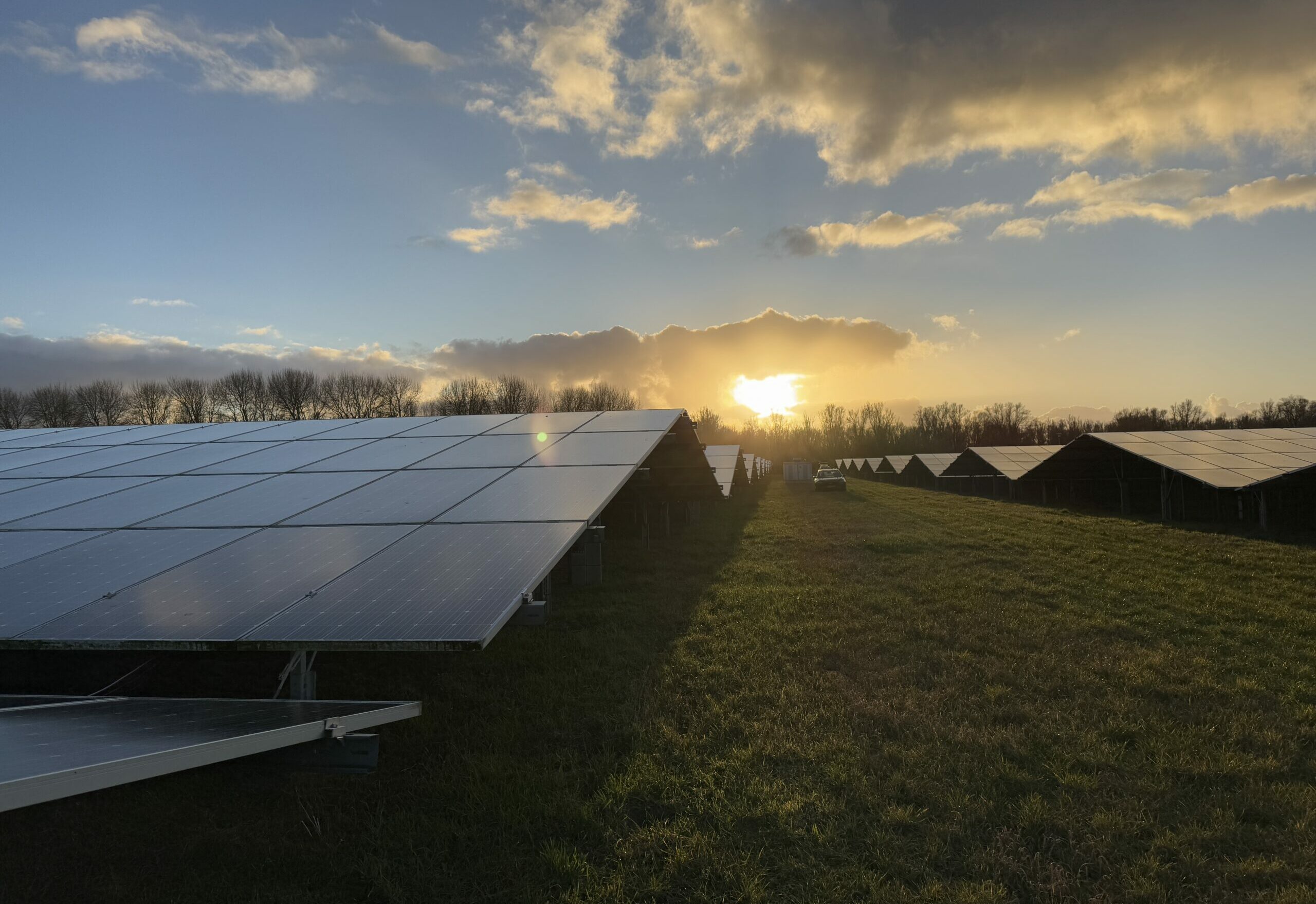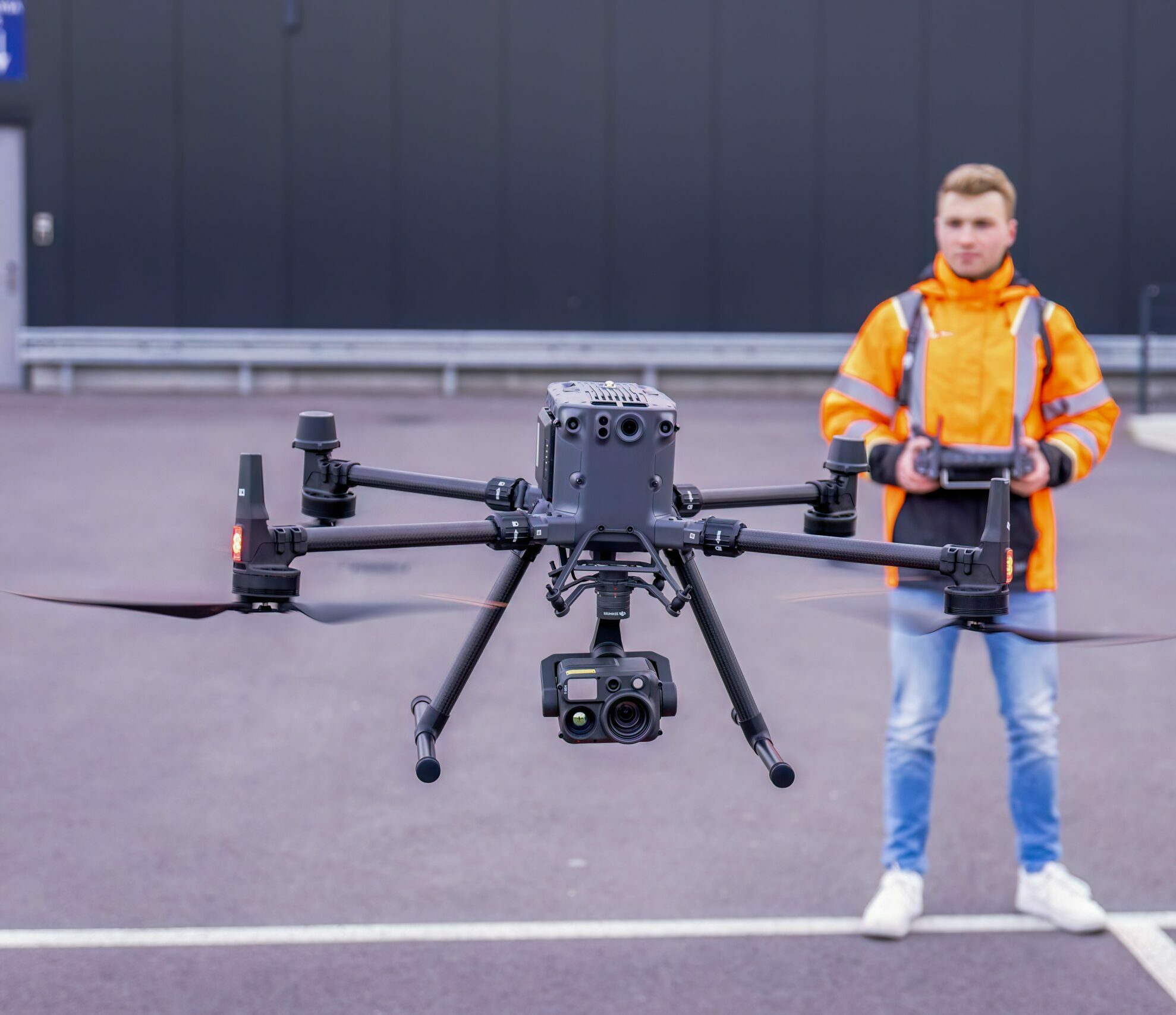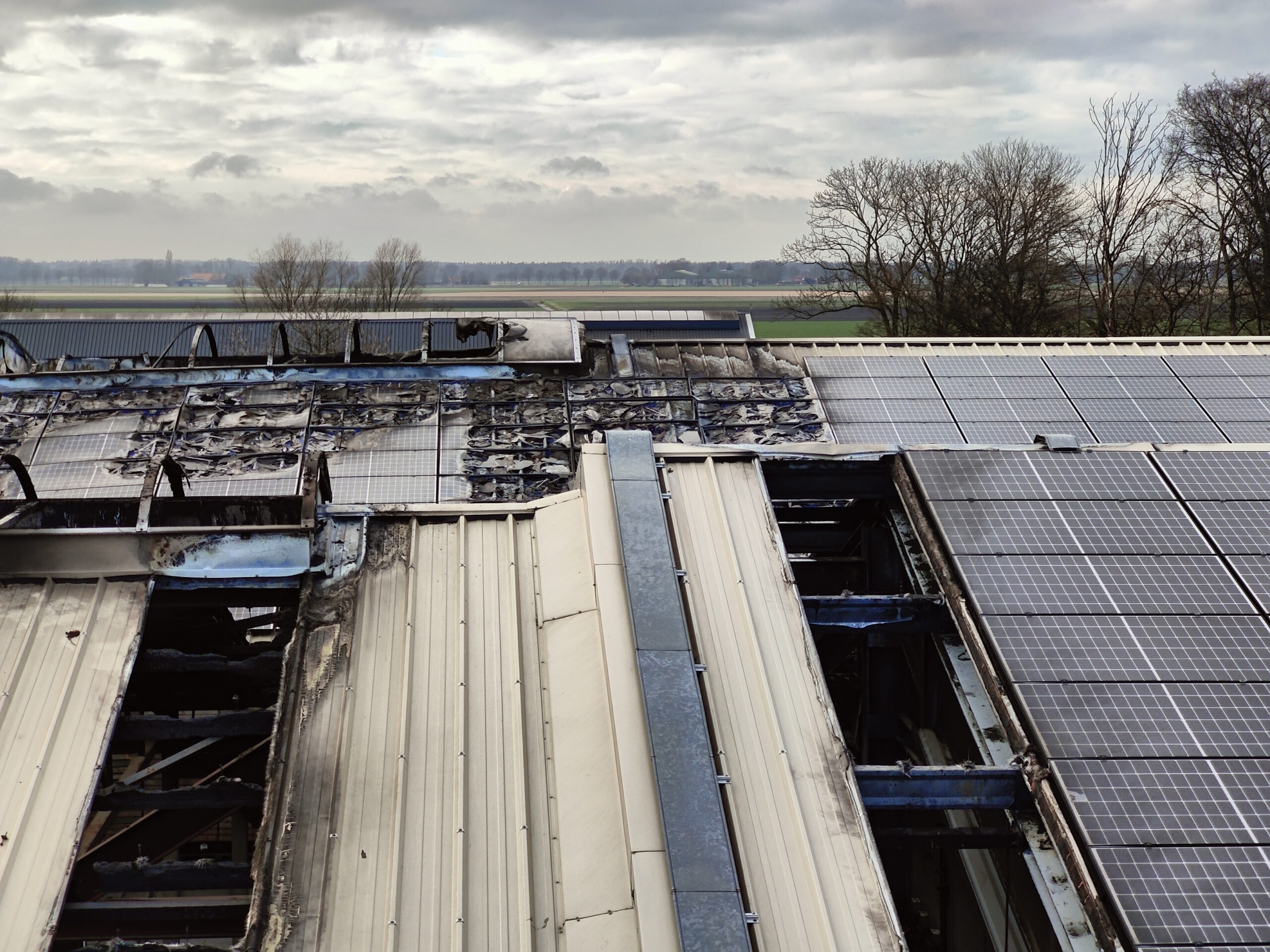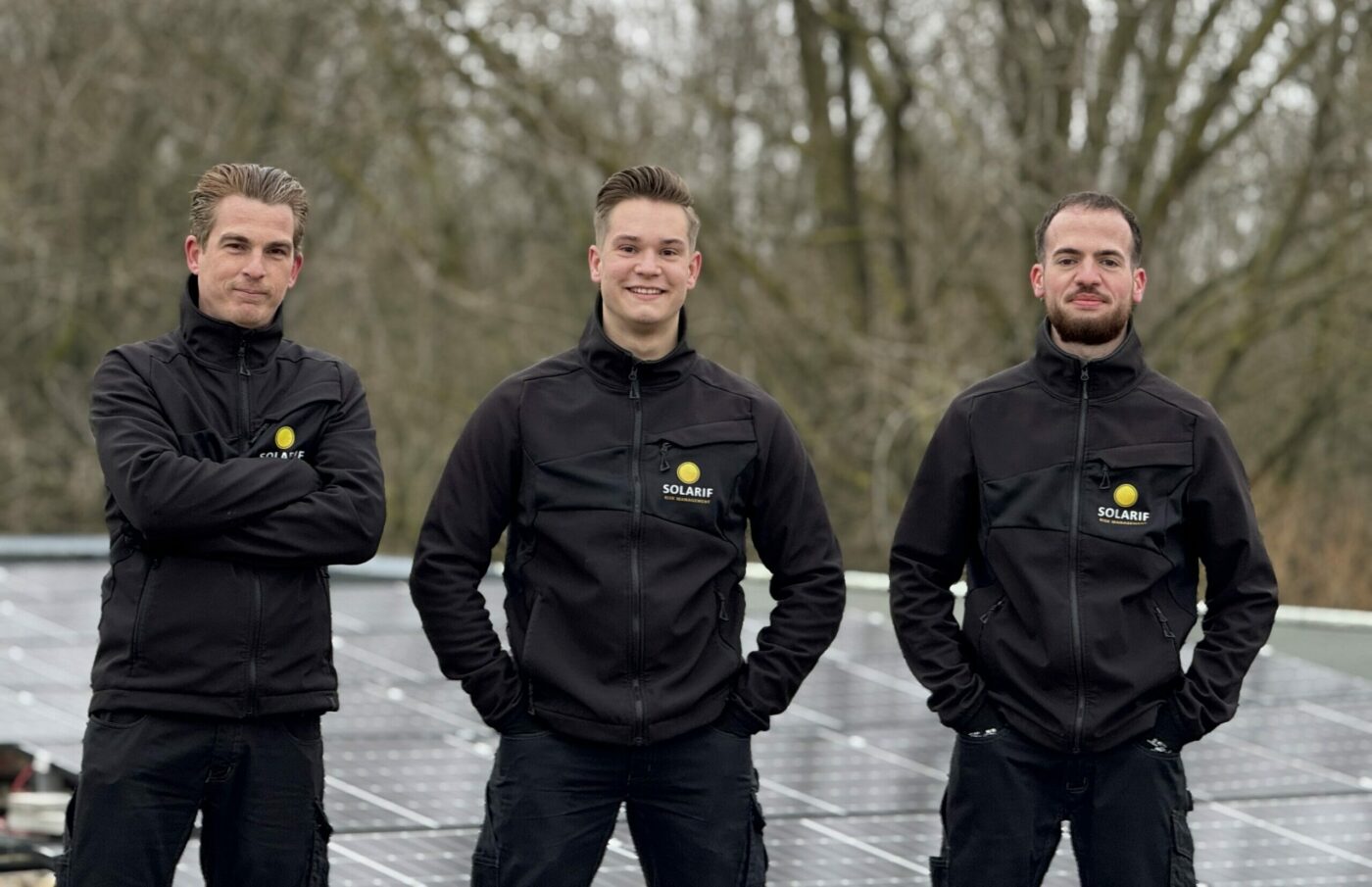Hoe lang is een Scope 12 certificaat geldig voor commerciële panden?
Een Scope 12 certificaat voor bedrijfspanden met zonne-installaties is doorgaans 5 jaar geldig. Na afloop van deze periode moet een Periodieke Inspectie (PI) worden uitgevoerd om de certificering te vernieuwen. Belangrijk om te weten is dat Scope 12 inspecties niet wettelijk verplicht zijn om zonnepanelen te hebben, maar wél door verzekeraars worden vereist als je je commerciële zonne-installatie wil verzekeren. Bij belangrijke wijzigingen aan je zonnestroomsysteem tijdens de 5 jaar kan een eerdere inspectie nodig zijn.

Wat is een Scope 12 certificaat voor commerciële zonne-installaties?
Scope 12-certificering is een uitgebreid inspectieprotocol dat speciaal is ontworpen voor commerciële zonne-installaties op de Nederlandse markt en dat de elektrische veiligheid, installatiekwaliteit en naleving van industrienormen verifieert. Deze certificering volgt strikte richtlijnen gebaseerd op gevestigde elektrische normen waaronder NEN 1010, NEN 3140, NEN-EN-IEC 62446-1, NEN-EN-IEC 61439, en SCIOS (Stichting Certificering Inspectie en Onderhoud) Nederlands inspectiekader Technisch Document 18.rnrnHet primaire doel van een Scope 12 certificaat is om zowel het brandrisico als de technische veiligheid van commerciële fotovoltaïsche (PV) installaties te beoordelen. Door het complete zonne-energiesysteem te onderzoeken, van panelen tot elektrische aansluitingen, helpen deze inspecties potentiële gevaren te identificeren die kunnen leiden tot systeemstoringen of brandincidenten.rnrnVoor eigenaren van commercieel vastgoed is deze certificering essentieel geworden om twee belangrijke redenen: het waarborgen van de veiligheid van waardevolle zonne-energie en het voldoen aan verzekeringseisen. Zonder een geldig Scope 12-certificaat zullen de meeste verzekeringsmaatschappijen potentieel onveilige systemen niet verzekeren, waardoor bedrijven kwetsbaar worden voor aanzienlijke financiële risico's.rnrnScope 12-inspecties zijn er in twee hoofdtypen: Eerste Bijzondere Inspectie (EBI) voor nieuwe installaties en Periodieke Inspectie (PI) voor bestaande systemen. De EBI controleert of een nieuw geïnstalleerd systeem aan alle toepasselijke normen voldoet, terwijl de PI bevestigt dat de veiligheidsniveaus in de loop der tijd zijn gehandhaafd.

Hoe lang is een Scope 12 certificaat geldig?
Een Scope 12 certificaat voor commerciële panden blijft 5 jaar geldig vanaf de afgiftedatum. Na deze periode moet een Periodieke Inspectie (PI) worden uitgevoerd om de certificering te vernieuwen. Indien in de tussentijd wijzigingen aan het systeem zijn aangebracht, kan een eerdere inspectie noodzakelijk zijn.
Deze geldigheidsperiode van 5 jaar komt overeen met de industrienormen voor elektrische veiligheidsinspecties en biedt een redelijk tijdsbestek voor het monitoren van mogelijke degradatie of veranderingen in de systeemprestaties. De periodieke aard van deze inspecties zorgt ervoor dat commerciële zonne-installaties hun veiligheidsnormen behouden gedurende hun operationele levenscyclus.rnrnHet is vermeldenswaard dat, hoewel 5 jaar de standaard geldigheidsperiode is, specifieke verzekeringsaanbieders soms frequentere inspecties kunnen eisen op basis van hun risicobeoordelingsbeleid. Dit is vooral relevant voor commerciële gebouwen waar de bedrijfsactiviteiten van hoge waarde zijn en waar een onderbreking (zoals een brand veroorzaakt door het zonnepaneelsysteem) aanzienlijke financiële verliezen zou veroorzaken.rnrnDaken met zonne-installaties vertegenwoordigen een ander en doorgaans hoger risicoprofiel in vergelijking met daken zonder installatie. Eigenaren van commercieel vastgoed moeten altijd de exacte vereisten controleren bij hun verzekeraar om een ononderbroken dekking te garanderen.rnrnHet proces van het plannen van een Scope 12 inspectie tot het ontvangen van het certificaat duurt normaal gesproken 2-4 weken onder ideale omstandigheden. Door een aanzienlijk tekort aan gekwalificeerde SCIOS Scope 12 inspecteurs op de huidige markt, kan de werkelijke doorlooptijd echter oplopen tot 6 maanden. Eigenaren moeten de verlenging van het certificaat ruim van tevoren plannen om gaten in de verzekeringsdekking te voorkomen.
Is een Scope 12 inspectie verplicht voor commerciële zonnepanelen?
Nee, een Scope 12 inspectie is niet wettelijk verplicht om zonnepanelen op een bedrijfspand te hebben. Het is echter wel verplicht als u uw commerciële zonne-installatie wilt verzekeren, aangezien vrijwel alle verzekeringsmaatschappijen een geldig Scope 12-certificaat eisen als voorwaarde voor dekking.rnrnDit creëert een belangrijk onderscheid: hoewel er geen overheidsregelgeving is die deze inspecties verplicht stelt, is de praktische realiteit dat het exploiteren van een onverzekerde commerciële zonne-installatie onaanvaardbare financiële risico's met zich meebrengt voor de meeste bedrijven. Daarom beschouwen de meeste eigenaren van commercieel vastgoed Scope 12-certificering als verplicht vanuit het oogpunt van risicobeheer.rnrnHet is belangrijk om te begrijpen dat Scope 12 verschilt van andere inspecties die wettelijk verplicht kunnen zijn in bepaalde contexten. Zo zijn Scope 8 inspecties (gericht op elektrische installaties gericht op de veiligheid voor werknemers) en Scope 9 inspecties (met betrekking tot de veiligheid van elektrische apparatuur en elektrisch gereedschap) wettelijk verplicht voor werkgevers in bepaalde sectoren, terwijl Scope 12 uitsluitend gericht is op PV-installaties en hun verzekerbaarheid. Scope 12 kan niet worden toegepast op andere vormen van hernieuwbare energie.rnrnVoor bedrijven die investeren in zonne-energie moet de Scope 12-inspectie worden gezien als een essentieel onderdeel van verantwoord activabeheer in plaats van slechts een regelgevende hindernis. Het biedt verificatie dat uw installatie voldoet aan professionele normen voor veiligheid en kwaliteit van installatiewerk, wat zowel uw investering beschermt als de mensen die in de buurt van de installatie werken.

Wat gebeurt er als uw Scope 12 certificaat verloopt?
Wanneer je Scope 12 certificaat verloopt, wordt je commerciële zonne-installatie onverzekerbaar totdat een nieuw certificaat wordt verkregen via een nieuwe inspectie. Dit zorgt voor aanzienlijke risico’s, omdat eventuele schade of incidenten met het zonnestroomsysteem in deze periode niet door de verzekering gedekt worden.
Verzekeringsaanbieders sturen meestal verlengingsberichten voor de vervaldatum, maar de verantwoordelijkheid voor het bijhouden van de geldigheid van het certificaat ligt uiteindelijk bij de eigenaar. Gezien de huidige marktomstandigheden met inspecteurstekorten en wachtperiodes tot 6 maanden, is het cruciaal om verlengingsinspecties ruim voor de vervaldatum te plannen.rnrnAls uw certificaat al is verlopen, moet u onmiddellijk contact opnemen met een SCIOS-gecertificeerd inspectiebedrijf om een Periodieke Inspectie in te plannen. Tijdens de wachtperiode is het raadzaam om contact op te nemen met uw verzekeraar om mogelijke tussentijdse oplossingen te bespreken, hoewel de meeste verzekeraars strikte eisen stellen aan geldige certificering.rnrnHet verlopen van het certificaat valt meestal ook samen met het moment waarop het onderhoud van het systeem moet worden beoordeeld. Het inspectie-interval van 5 jaar biedt een uitstekende gelegenheid om niet alleen je certificering te vernieuwen, maar ook om eventuele problemen met degradatie aan te pakken, indien nodig componenten te updaten en ervoor te zorgen dat het systeem blijft werken op een optimaal efficiëntie- en veiligheidsniveau.
Vermindert het hebben van een Scope 12 certificaat de verzekeringspremie?
Nee, het hebben van een Scope 12-certificaat leidt niet tot lagere verzekeringspremies voor commerciële zonne-installaties. Het certificaat is geen hulpmiddel om korting te krijgen, maar eerder een basisvoorwaarde voor het verkrijgen van verzekeringsdekking tegen normale tarieven voor je zonne-installatie.rnrnVerzekeringsmaatschappijen beschouwen Scope 12-certificering als de basisnorm om te bepalen of een commerciële zonne-installatie verzekerbaar is. Zonder deze certificering zullen verzekeraars meestal weigeren om volledige dekking te bieden, of deze alleen aanbieden tegen hogere premies of met beperkende voorwaarden zoals het uitsluiten van elektrische- en brandschade, ongeacht het premieniveau. Dit weerspiegelt de erkenning van de industrie van het belang van goede elektrische veiligheidsnormen bij het beperken van brandrisico's.rnrnHoewel de certificering zelf niet leidt tot lagere premies, identificeert het inspectieproces vaak veiligheidsproblemen die, wanneer ze worden aangepakt, incidenten kunnen helpen voorkomen die in de toekomst zouden leiden tot claims en potentiële premieverhogingen. Op deze indirecte manier draagt de inspectie bij aan het risicobeheer op lange termijn voor eigenaars van zonne-energie.rnrnCommerciële vastgoedeigenaars moeten Scope 12 certificering zien als een essentiële investering in risicobeheer in plaats van als een kostenbesparende maatregel voor verzekeringsdoeleinden. De primaire waarde ligt in de mogelijkheid om überhaupt dekking te krijgen, samen met de gemoedsrust die je krijgt als je weet dat je installatie voldoet aan erkende veiligheidsnormen.

Wie mag een geldige Scope 12 inspectie uitvoeren?
Alleen SCIOS-gecertificeerde bedrijven met gecertificeerde SCIOS Scope 12 inspecteurs zijn bevoegd om geldige inspecties uit te voeren voor commerciële panden. Deze inspecteurs hebben gespecialiseerde training gevolgd in het beoordelen van PV-installaties volgens de relevante technische normen en veiligheidsprotocollen.
Het is cruciaal dat deze inspecties worden uitgevoerd door onafhankelijke bedrijven en niet door dezelfde bedrijven die het zonnesysteem hebben geïnstalleerd. Deze onafhankelijkheid zorgt voor een objectieve evaluatie zonder belangenverstrengeling, wat een belangrijke vereiste is voor acceptatie door zowel SCIOS als verzekeringsmaatschappijen.rnrnBij het selecteren van een inspectiebedrijf moeten eigenaren van commercieel vastgoed hun SCIOS-certificering specifiek verifiëren voor Scope 12-inspecties, aangezien verschillende Scope-certificeringen van toepassing zijn op verschillende typen systemen. U kunt de certificeringsstatus van een bedrijf controleren via het officiële SCIOS-register.rnrnVoordat de inspectie plaatsvindt, moeten eigenaren van onroerend goed uitgebreide documentatie verstrekken, waaronder: legplannen, kabelplannen, ballastplannen, installatiedetails en dragende constructieberekeningen. Als deze documenten op voorhand klaar zijn, kan het inspectieproces vlot en grondig verlopen. Deze documentatie is essentieel voor de inspecteur om goed te kunnen beoordelen of de PV-installatie correct is aangesloten en veilig is geïnstalleerd.rnrnHet inspectieproces volgt een gestructureerde aanpak die bestaat uit voorbereiding, inspectie ter plaatse, rapportage van bevindingen en uiteindelijk afgifte van het Scope 12-certificaat als de installatie voldoet. Als er problemen worden vastgesteld, moeten er reparaties worden uitgevoerd en een herinspectie worden uitgevoerd voordat de certificering kan worden toegekend. Voor grotere systemen (>250kW) kan de inspectie een volledige dag of meer in beslag nemen.
Wat evalueert een Scope 12-inspectie?
Een Scope 12 inspectie evalueert uitgebreid drie kritieke aspecten van uw commerciële PV-installatie:rnrn1. Brandveiligheid - onderzoek naar potentiële ontstekingsrisico's, juiste bedrading en installatie van componenten om brandgevaar te minimaliserenrnrn2. Technische staat - beoordeling van de algemene staat van het systeem, inclusief panelen, omvormers en elektrische componentennrn3. De inspectie moet een positief resultaat hebben (zonder bevindingen) om aanvaard te worden door zowel SCIOS als de verzekeringsmaatschappijen. Eventuele problemen moeten worden opgelost voordat een certificaat kan worden afgegeven. Deze dubbele validatie zorgt ervoor dat de inspectie voldoet aan zowel de technische normen als de verzekeringseisen.rnrnScope 12 inspecties voor PV-installaties verschillen aanzienlijk van andere elektrische inspecties zoals Scope 10 (brandveiligheidsinspectie voor elektrische installaties). Het Scope 12 protocol is speciaal ontwikkeld voor de Nederlandse verzekeringsmarkt om de unieke risico's van zonne-energiesystemen op commerciële gebouwen aan te pakken.rnrnWaar residentiële zonnepaneelinstallaties meestal geen Scope 12 inspecties nodig hebben, zijn ze essentieel voor commerciële eigendommen vanwege de hogere potentiële financiële impact van systeemstoringen of incidenten.
Inzicht in fabrieksgarantie vs. verzekeringsdekking
Het is belangrijk om het onderscheid te begrijpen tussen fabrieksgaranties en verzekeringsdekking voor zonne-installaties, omdat ze verschillende doelen dienen en verschillende bescherming bieden.rnrn Fabrieksgaranties hebben belangrijke beperkingen. Ze dekken meestal alleen defecten aan de panelen zelf en sluiten gevolgschade uit. Dit betekent dat als een paneel defect raakt, de garantie misschien het defecte paneel vervangt, maar niet de kosten dekt voor transport, arbeid, verwijdering van het oude paneel of bedrijfsonderbreking. Bovendien wordt de garantie waardeloos als de fabrikant failliet gaat.rnrn Daarentegen biedt een verzekering met inherente defectdekking een bredere bescherming die werkt op projectniveau. Deze dekking blijft geldig zelfs als de fabrikant niet meer bestaat en, wat nog belangrijker is, het dekt gevolgschade. Dit betekent dat als een defect aan een paneel leidt tot uitval van het systeem of andere verliezen, deze kosten kunnen worden gedekt door de verzekeringspolis.rnrnDe verzekering wordt vooral waardevol voor commerciële installaties waar uitval van het systeem kan leiden tot aanzienlijke financiële verliezen. Om deze dekking te krijgen, hebben verzekeraars echter bewijs nodig dat het systeem voldoet aan de veiligheidsnormen - en dat is waar de Scope 12-certificering essentieel wordt.rnrn Verzekeraars zullen geen dekking bieden voor systemen die zij als onveilig of niet-conform beschouwen. Een geldig Scope 12-certificaat is daarom een voorwaarde voor het verkrijgen van een verzekering tegen standaardtarieven. Zonder dit certificaat kan de dekking alleen worden aangeboden met hogere premies of beperkende voorwaarden, of zelfs helemaal niet.
Reikwijdtecombinaties voor uitgebreide veiligheid van zonne-installaties
Voor de meest uitgebreide veiligheidsbeoordeling van commerciële zonne-installaties kunnen bepaalde scopecombinaties een betere bescherming bieden:rnrn- Scope 8 + Scope 12: Deze combinatie garandeert zowel de algemene elektrische installatieveiligheid voor werknemers als de specifieke veiligheidsvereisten van de PV-installatie, met bijzondere aandacht voor de manier waarop het zonnesysteem is aangesloten op de elektrische infrastructuur van het gebouw.rnrn- Scope 10 + Scope 12: Deze combinatie richt zich op brandveiligheidsinspectie voor elektrische installaties naast de veiligheid van de PV-installatie en is vooral waardevol voor installaties met verhoogde brandrisico's.rnrn- Scope 8 + Scope 10 + Scope 12: Deze combinatie is de meest uitgebreide aanpak en is vooral belangrijk voor batterijopslagsystemen die zijn aangesloten op PV-installaties. Deze scopecombinaties maken een meer holistische benadering van veiligheid en naleving mogelijk, waarbij de onderlinge verbondenheid van elektrische systemen en zonne-installaties in commerciële omgevingen wordt aangepakt. Door meerdere relevante scopes te laten inspecteren, kunnen eigenaren van onroerend goed ervoor zorgen dat hun systemen voldoen aan alle toepasselijke veiligheidsnormen en verzekeringseisen.
Stel je zonne-investering veilig.
Onze gecertificeerde SCIOS Scope 12-experts kunnen uw systeem inspecteren en zorgen voor naleving, veiligheid en verzekerbaarheid. Neem nu contact met ons op voor de benodigde Scope 8, Scope 10 en Scope 12 inspectie! rnrn📧 E-mail: support@solarif.comrn☎️ Telefoon: +31 (0)26 711 5050




